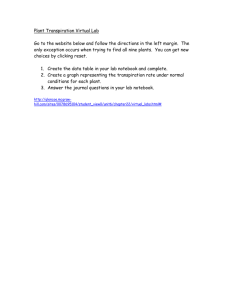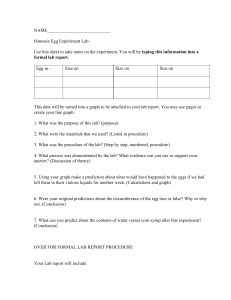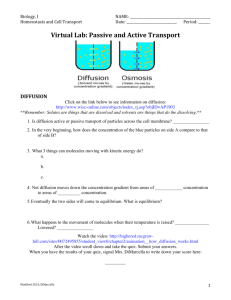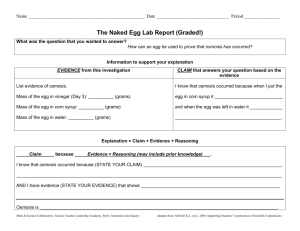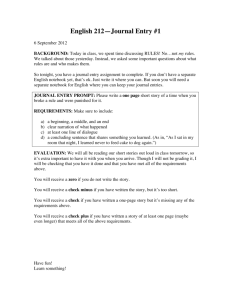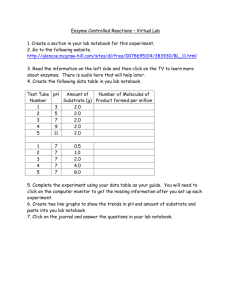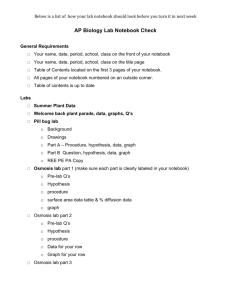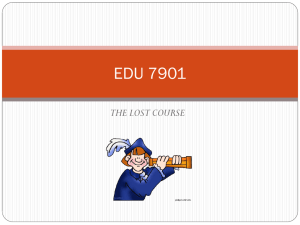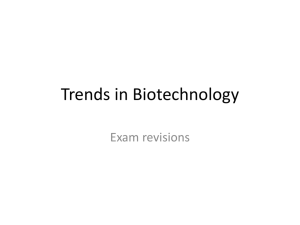Biology Lesson Plans - Paint Valley Schools
advertisement
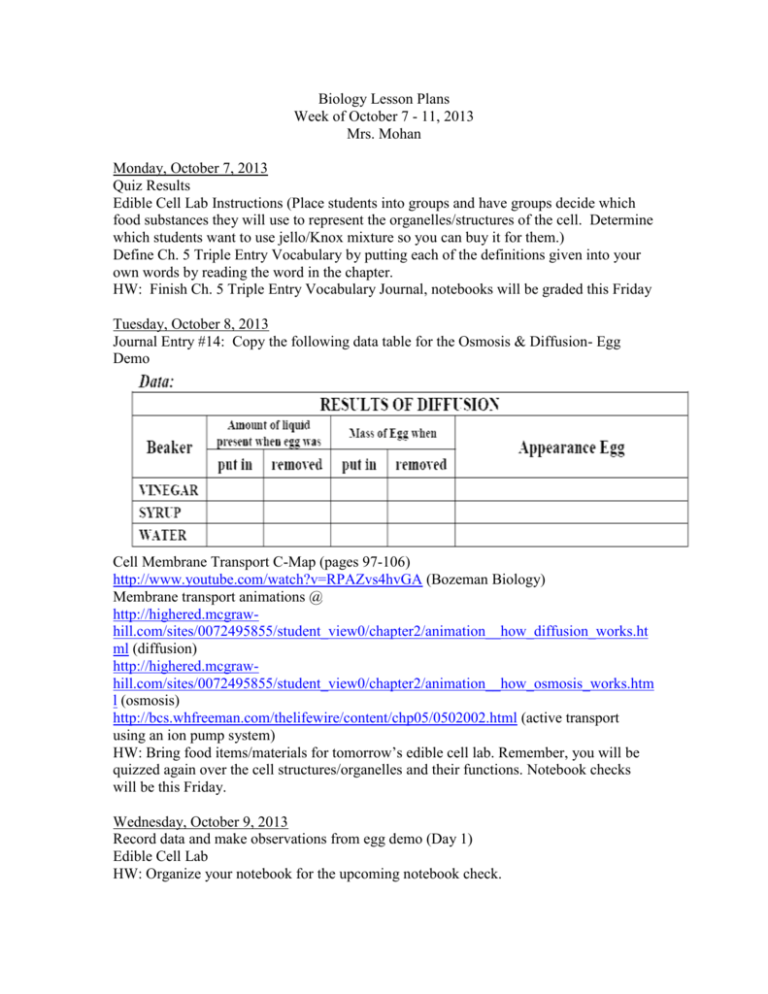
Biology Lesson Plans Week of October 7 - 11, 2013 Mrs. Mohan Monday, October 7, 2013 Quiz Results Edible Cell Lab Instructions (Place students into groups and have groups decide which food substances they will use to represent the organelles/structures of the cell. Determine which students want to use jello/Knox mixture so you can buy it for them.) Define Ch. 5 Triple Entry Vocabulary by putting each of the definitions given into your own words by reading the word in the chapter. HW: Finish Ch. 5 Triple Entry Vocabulary Journal, notebooks will be graded this Friday Tuesday, October 8, 2013 Journal Entry #14: Copy the following data table for the Osmosis & Diffusion- Egg Demo Cell Membrane Transport C-Map (pages 97-106) http://www.youtube.com/watch?v=RPAZvs4hvGA (Bozeman Biology) Membrane transport animations @ http://highered.mcgrawhill.com/sites/0072495855/student_view0/chapter2/animation__how_diffusion_works.ht ml (diffusion) http://highered.mcgrawhill.com/sites/0072495855/student_view0/chapter2/animation__how_osmosis_works.htm l (osmosis) http://bcs.whfreeman.com/thelifewire/content/chp05/0502002.html (active transport using an ion pump system) HW: Bring food items/materials for tomorrow’s edible cell lab. Remember, you will be quizzed again over the cell structures/organelles and their functions. Notebook checks will be this Friday. Wednesday, October 9, 2013 Record data and make observations from egg demo (Day 1) Edible Cell Lab HW: Organize your notebook for the upcoming notebook check. Thursday, October 10, 2013 Record data and make observations from egg demo (Day 2) Biology Pre-Assessment for growth data con’t. HW : Notebooks will be checked in class tomorrow. Friday, October 11, 2013 Record data and make observations from egg demo (Day 3) Biology Pre-Assessment for growh data Notebook check HW : Next week we will have a lab on plasmolysis in onion skin epidermal cells and take a test over Ch. 4 and 5 on Wednesday Science Inquiry and Application During the years of grades 9 through 12, all students must use the following scientific processes with appropriate laboratory safety techniques to construct their knowledge and understanding in all science content areas: • Identify questions and concepts that guide scientific investigations; • Design and conduct scientific investigations; • Use technology and mathematics to improve investigations and communications; • Formulate and revise explanations and models using logic and evidence (critical thinking); • Recognize and analyze explanations and models; and • Communicate and support a scientific argument. Cell function • Cellular processes o Characteristics of life regulated by cellular processes o Photosynthesis, chemosynthesis, cellular respiration o Cell division and differentiation
